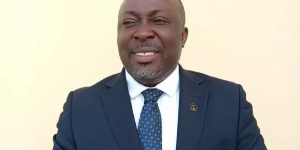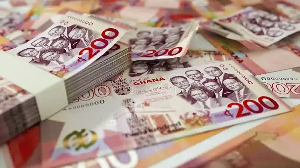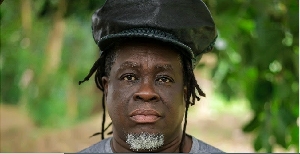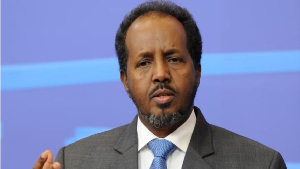e…a means to achieving economic growth and transformation in Africa
“…we must unite for economic viability first of all and then to recover our mineral wealth in Southern Africa, so that our vast resources and capacity for development will bring prosperity for us and additional benefits for the rest of the world. That is why I have written elsewhere that the emancipation of Africa could be the emancipation of man” DR. KWAME NKRUMAH
Africa is touted as the continent of opportunities where there are numerous resources available for economic growth and transformation. Resources of Africa spans from minerals such as gold, diamond, bauxite, ore and currently the increasingly discovery of oil in large quantities in countries across the continent; cocoa, soya, millet, maize, cattle and livestock are among the various resources that Africa is endowed with.
One would say that indeed, been endowed with resources is an ingredient to economic growth and transformation; but a lot depends on the approaches, policies and programmes designed towards the effective utilization of those resources for the betterment of the populace.
Africa has seen a dramatic increase in the investment in the infrastructural development from various Asian countries such as Singapore and China in the past three years. All these investment are geared towards promoting economic growth and transforming Africa from a raw material producing continent to manufacturing of finished and semi finished goods and services. That is to create an enabling environment where we as Africans, could add value to our numerous raw resources before exportation, so that we can have adequate share in the world market.
Trade has become a major means by which developed countries have used to reach their level of economic growth and transformation. Day-in and day-out, there is a level of trade between countries, either bilateral or multilateral. That is why the issue of trade must be a major concern to us, as Africans.
We are living on a continent where the issues of trade are characterized by restrictions from one country to the other and also among sub regional categories. It is the strongest conviction of Pan-Africanism that we as Africans, could trade among ourselves as easy as possible with little or no form of trade restrictions. Our interests as a continent have to be clearly stipulated and our position on trade policies clearly articulated. Most often, it is rather realized that there are barriers to trade among African countries whiles there exist free trade among countries outside Africa. There exist numerous blockades for one country in Africa to trade with another country in Africa but the opposite is the case with countries outside the continent. For Africa to achieve the level of economic growth and transformation that it so dearly dreams off, then there must be a level of low trade restrictions in Africa. Pan-African free trade should be the core mandates of trade policy makers in Africa.
According to Wikipedia, the free encyclopedia, free trade is a policy by which a government does not discriminate against imports or interferes with exports by applying tariffs (to imports) or subsidies (to exports) or quotas. According to the law of comparative advantage, the policy permits trading partners’ mutual gains from trade of goods and services. Yes, free trade is means of enjoying goods and services that one has a disadvantage in producing due to the level of discrepancies in resources endowments of various countries. That is, through trade one country can have access to goods and services produced in other countries. Free trade is also a system in which goods, capital, and labor flow freely between nations, without barriers which could hinder the trade process.
According to the United Nations Economic Commission for Africa (ECA), only 10% of trade in Africa occurs between African countries. The Economic Commission for Africa (ECA), therefore strongly believes that, this is indeed the time to change to a ‘Free Trade Africa’
Taxation is a major factor which militates against free trade in Africa. Trade among countries in Africa is restricted one way or the other by high level of tariffs. In cases where there are low levels of tariffs, the cost of transportation is also another issue which militates against trade on the continent. Most governments in Africa tend to levy higher level of import and export taxes among their neighbouring countries.
Import and export quotas, as well as subsidies by government also impedes against free trade in Africa. Tax breaks, and other forms of support to domestic producers must be dealt with as they all cause hindrance to free trade. These measures do not create the room for effective competition. At the end of the monopoly, abnormal profiteering and corruption characterizes our economic markets.
INFRASTRUCTURE deficiency also hinders free trade in Africa. There are no proper structures in place to facilitate free flow of goods and services from one African country to the other. Infrastructure problems in Africa span across energy, transportation, technology and many others. Proper policies must be laid to increase the availability of adequate infrastructure to support and promote free trade in Africa. In the provision of adequate infrastructure in Africa, governments are been limited, due to the ever increasing number of priorities competing for funds. It has therefore become prudent that governments adopt the Public-Private-Partnership (PPP) agreements in the developments of infrastructure projects.
The atmosphere for Public-Private-Partnership must be very conducive to encourage private participation and simultaneously achieve broader policy objectives. The Public-Private-Partnership can be structured in such a way that all responsibility are assigned either to the public or private sector for the design, construction, operation, maintenance and finance of projects. This will go along way to determine the terms of the partnership agreement and all these measures will go along way to develop and improve the infrastructure sector in Africa for the promotion of free trade.
Free trade means there is the transfer of goods from one country to another without taxes including tariffs or other trade barriers such as quotas on imports or subsidies for producers. There are so many free trade agreements been promoted in various parts of the world and so many international organizations are projected towards achieving a free trade system in the world. Free trade agreements are international agreements between two or more countries to eliminate tariffs on substantially all trade between them. Modern Free trade agreements generally go beyond eliminating tariffs to include commitments on services, customs cooperation, intellectual property, foreign investment, and other issues that will assist trade.
Free trade does not mean that one country should be the dumping site for other country. It simply means that foreign companies also have the platform to trade efficiently, easily, and effectively as domestic producers to help reach the level of economic growth held by all trading partners.
The core purpose behind the promotion of Pan-African free trade in Africa is to lower the prices for goods and services by promoting competition. Pan-African free trade will serve as a means of preventing domestic producers from relying on government subsidies and other forms of assistance, including quotas which essentially force citizens to buy from domestic producers, while foreign companies can make inroads on new markets when barriers to trade are lifted.
Again, in addition to reducing prices, free trade is also suppose to encourage innovation, since competition between companies sparks a need to come up with innovative products and solutions to capture market share. Competition thus breeds efficiency and innovativeness. Opponents of free trade often argue that it hurts domestic producers by opening up competition to companies which operate in nations with less stringent labor laws. Most often the opposite is the case.
Free trade foster international cooperation, by encouraging nations to freely exchange goods and services. Agreements between trading partners can also promote educational advantages, such as sending engineers to train with people in the top of the engineering field in one nation, or sending agriculture experts to rural areas to teach people about new farming techniques and food safety practices. All these benefits could be achieved if there is a high level of tolerance and free trade agreement between countries across Africa.
Pan-Africa free trade means that Africans can trade among themselves without much difficulty. This means that governments in Africa should look at their trade policies and laws and cause the necessary amendments which will eventually foster free trade in Africa. It is realized that most often, African markets become the dumping sites for most products coming from outside Africa. This weakens the bargaining power of Africa. Trade policies in Africa should rather be geared towards ensuring free trade among member countries before opening up to other countries outside the continent. Africa, due to its inefficiency in trade policies, has become the victim of bad trade outturn; as Africa is always found on the loosing side.
Eliminating restrictions for free trade between countries in Africa would lead to greater integration of economies and mutual benefits, including more export opportunities and product choices in the importing country across the continent.
By: Paul Frimpong
University of Ghana
Associate Chartered Economist (ACE) - ACCE-USA
Tel: 0241 229 548
Email: deonepf44@yahoo.com
PLEASE NOTIFY ME WHEN PUBLISHED
Opinions of Wednesday, 24 October 2012
Columnist: Frimpong, Paul














